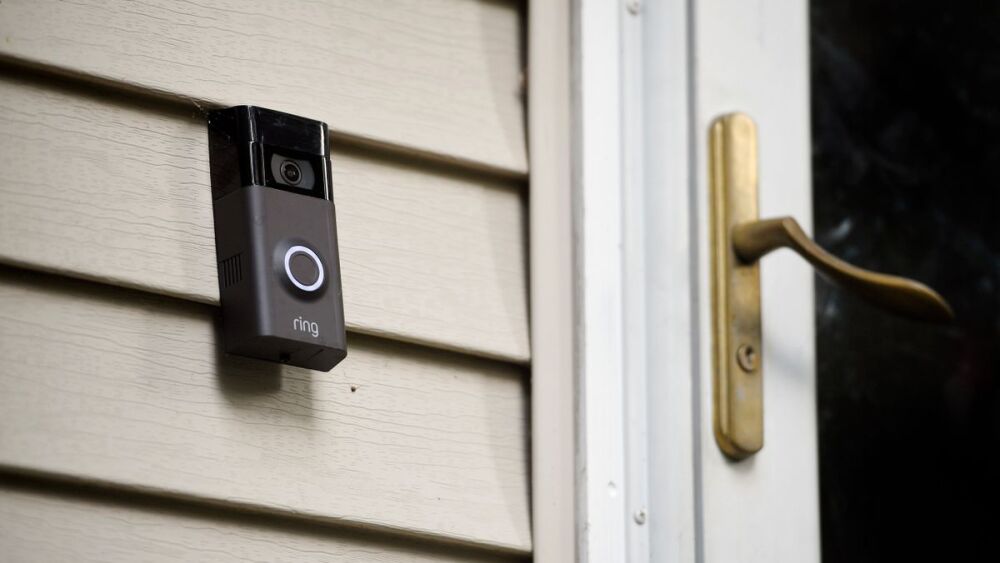The proliferation of doorbell cameras has been a major investigative boon for law enforcement. Like the camera-equipped smartphones in virtually every American’s pocket, the ubiquity of doorbell camera products like Ring, Arlo and Nest has greatly expanded the number of digital eyes out there capturing crime.
But as evidenced in the recent fatal shooting of two FBI agents attempting to serve a warrant, this technology is a potential danger for law enforcement as much as it is a utility. Here are five things to know about doorbell cameras.
1. The democratization of home surveillance means doorbell cameras are everywhere.
These products have exploded in popularity in recent years. With offerings as low as $60, doorbell cameras are substantially cheaper than home security offerings of the past. As a result, there are millions of the devices out there, with the industry projected to continue to grow significantly. A whopping 84% of Police1 readers polled this month said they are regularly encountering doorbell cameras in their jurisdiction.
2. As consumer technology has evolved, so has crowdsourcing evidence.
Just as social media platforms like Nextdoor have increased collaboration between police and the public, so too has hardware. From the iPhone to Alexa, the rise in popularity of consumer products that can capture images or audio has led to numerous instances where crowdsourcing digital evidence has been a key investigative component to solving cases. An early example of success was the investigation of the Keene Pumpkin Festival riot in 2014, in which crowdsourced evidence led to 25 arrests.
Perhaps the most well-known example of crowdsourcing evidence is the investigation of the Boston Marathon bombing in 2013, in which investigators found themselves inundated with over 13,000 videos and 120,000 photos from the large-scale incident. The lessons learned from these investigations and others eventually led to the development of both paid and free software solutions to effectively collect and organize digital evidence submitted by the public.
While doorbell cameras are a relatively newer technology to gain popularity with the public compared to other recording devices like smartphones, agencies have already capitalized on using evidence from these cameras in investigations. Police in Iowa credit a doorbell camera for catching a murder suspect. Cops in Arizona used the tech to curb thefts. Some agencies have solicited the public to register their cameras to simplify the process of requesting footage or, in some cases, allow police to directly stream live video-in-progress. Some PDs have even overseen giveaways of the products to local residents.
3. Law enforcement partnerships have resulted in public pushback.
Over 2,000 police or fire departments have partnered with Amazon’s Ring alone, and police departments reportedly requested footage from Ring cameras for over 22,000 incidents just in the last year. These partnerships have resulted in controversy and pushback from both the public and politicians.
In 2019, Sen. Ed Markey (D-Mass.) said Amazon’s policies with regards to Ring were an “open door for privacy and civil liberty violations.” Last year, at the height of the George Floyd protests, Markey called for a complete severing of the relationship between the company and law enforcement agencies.
“It’s time to cut ties between Amazon’s Ring doorbell camera and police departments across the country,” Markey tweeted. “We do not need a surveillance state, we cannot have a police state, and we must not allow these privacy and civil liberty violations to continue.”
4. The FBI warned of officer safety issues with the tech.
The deadly ambush in Florida earlier this month, in which two agents were killed and three were wounded in one of the worst attacks in FBI history, is not the first time the technology has reportedly presented a danger to law enforcement officers.
In a 2019 bulletin, the FBI warned of the officer safety issues posed by the technology, citing an incident in which a doorbell camera was used to tip off a suspect about the presence of police. In a document from 2017, the FBI further described the incident in which officers attempting to serve a search warrant were monitored by the subject, who was not on the premises at the time, remotely via a doorbell camera. While watching the footage, the subject informed his neighbors and landlord of the FBI’s presence.
In another incident late last year, a family in Georgia was swatted by a hacker who then used the family’s doorbell camera to harass them and the officers who were called to the hoax.
5. A change in tactics?
Doorbell cameras can alert residents of people approaching within 100 feet, are easily accessed and monitored remotely, and can be difficult to spot because of their small size. Retired SWAT officer David Thomas suggested to the Associated Press that diversions to distract a suspect might become increasingly commonplace during high-risk operations as a way to protect against a doorbell camera ambush. One thing is certain: as these cameras become increasingly common, law enforcement tactics will likely change to account for them.
LEARN MORE
Never underestimate the risk of this search warrant
9 things police investigators need to know about the internet of things
Working toward a common goal: Marrying public/private partnerships with technology to reduce crime
The role of home devices in police investigations
5 key considerations for crowdsourcing evidence
Crowdsourcing crime: Why the public may be your best investigative asset













